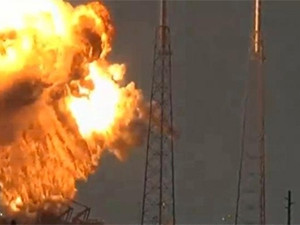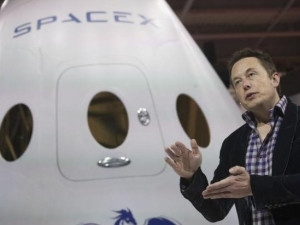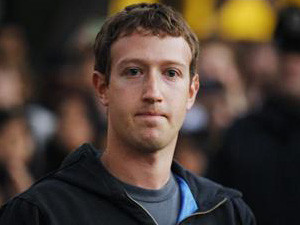
Social network giant Facebook's satellite, intended to spread Internet access in Sub-Saharan Africa, went up in smoke in Florida yesterday, when SpaceX's Falcon 9 rocket blew up, destroying its satellite cargo.
The SpaceX Falcon 9 rocket was due to blast off in two days and place the satellite in orbit.
The explosion comes as Facebook boss Mark Zuckerberg, who is currently on his first exploration trip of Sub-Saharan Africa, revealed plans to use the satellite to provide connectivity to the most rural parts of the region.
Speaking to entrepreneurs in Lagos, Nigeria on Wednesday, Zuckerberg disclosed his company's plans to launch a satellite this week to spread Internet access. However, the explosion has dampened Facebook's plans to connect rural communities.
In a Facebook post, Zuckerberg expressed his disappointment at the loss of the satellite: "As I'm here in Africa, I'm deeply disappointed to hear that SpaceX's launch failure destroyed our satellite that would have provided connectivity to so many entrepreneurs and everyone else across the continent."
He added: "Fortunately, we have developed other technologies like Aquila that will connect people as well. We remain committed to our mission of connecting everyone, and we will keep working until everyone has the opportunities this satellite would have provided."
Mars mission
Tech entrepreneur Elon Musk developed SpaceX as a way of slashing launch costs to make travel to Mars affordable.
The explosion of the SpaceX Falcon 9 rocket follows last year's launch accident that destroyed a load of cargo headed for the space station.

SpaceX had been due to launch its 29th Falcon 9 rocket before dawn on Saturday, and Facebook would have been among the customers for bandwidth on that satellite.
No injuries were reported, and the cause of the SpaceX rocket explosion has not yet been established.
Connected Africa
Zuckerberg has long been an advocate of affordable widespread Internet access through initiatives like Facebook's Free Basics.
To achieve its connectivity goal, Facebook developed a three-part plan that involves building infrastructure, making sure the network is affordable, and ensuring people understand the importance of the Internet.
According to Zuckerberg, building the infrastructure would involve launching a satellite to beam down connectivity. "We've also built solar-powered drones that are basically a cellphone tower in the sky that can go over really remote rural locations and beam down connectivity to make sure that network spreads to everyone.
"The Internet is one of the most fundamental parts of infrastructures that I think needs to exist," he said.
African experience
On his first trip to Sub-Saharan Africa, Zuckerberg started with a surprise visit to Lagos, Nigeria earlier this week, which was subsequently followed by a trip to Nairobi, Kenya.
Zuckerberg has used this time to meet with entrepreneurs, partners and developers, as well as explore the local cuisine of the West and East African nations.

According to Zuckerberg, the purpose of his trip to the region is to learn about the start-up ecosystem in Nigeria and explore Kenya's pioneering mobile money ecosystem.
Commenting on his visit to Kenya, he said in a post on his Facebook profile: "I'm here to meet with entrepreneurs and developers, and to learn about mobile money ? where Kenya is the world leader."
With a global monthly active user base of 1.65 billion, the African continent remains a key region for Facebook's growth strategy.
In 2015, Facebook said its active user population in Africa was 120 million, with more than 90% of all monthly active users using mobile phones to like, share and upload content on the social network.
In Nigeria, more than 16 million people visit Facebook every month, and more than four million users access Facebook in Kenya, the social network has disclosed.
Share